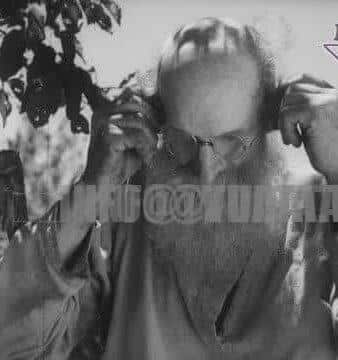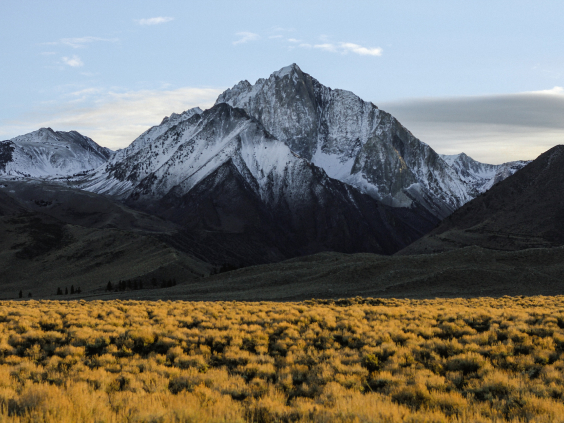The story of Vasily Tishkin, who reportedly lived 142 years in 1947 according to the filmstrip “News of the Day,” fascinates anyone interested in extreme longevity. If true, he ranks among the oldest people ever. People often question claims of extreme age because earlier record-keeping often proves inaccurate, and some stories exaggerate lifespans. This curiosity drives searches on aging, lifespan, anti-aging strategies, longevity secrets, centenarians, supercentenarians, telomere health, life extension, anti-aging supplements, longevity diets, and healthy living. Modern science studies these areas to show how humans can live longer, healthier lives.
Tishkin’s life story
indeed that old in 1947?
Vasily Tishkin: Stock Footage of a 142-Year-Old Longevity Legend
This rare stock footage captures Vasily Tishkin, reportedly 142 years old in 1947, offering a unique glimpse into extreme longevity. Tishkin’s story fascinates audiences interested in anti-aging, lifespan extension, centenarians, supercentenarians, and healthspan science.
Content creators can license this footage for documentaries, educational projects, or media productions in any language. It works perfectly for exploring aging, longevity secrets, anti-aging supplements, telomere health, and life extension strategies. Add this historic clip to your TVData collection to enrich productions that explore the science and human stories behind living longer, healthier lives.
He was reportedly 142 years old in 1947
The Remarkable Tale of Vasily Tishkin: A Man Who Lived 142 Years
In 1947, a short filmstrip titled “News of the Day” captured viewers’ attention worldwide. It introduced Vasily Tishkin, a man who reportedly lived an astonishing 142 years. The footage shows Tishkin recalling life in the 18th century and describing generations of change in his village and beyond. If accurate, his lifespan would rank him among the oldest people ever recorded.
Story of Vasily Tishkin
The story of Vasily Tishkin, who was reportedly 142 years old in 1947 according to the filmstrip “News of the Day,” seems to be a fascinating account. Unfortunately, there isn’t any specific known historical record or widely recognized documentation confirming such an extreme age, which would make him one of the oldest persons ever. Extreme age claims like this are often met with skepticism due to the potential for inaccurate record-keeping or exaggeration, especially from earlier periods.
From 142-Year-Old Tales to Today’s Anti-Aging Research
People marveled at his vitality and sharp memory, but many questioned the claim. Rural record-keeping in earlier centuries often proved unreliable, and some storytellers exaggerated ages for fame or curiosity. Still, Tishkin sparked imagination: what habits, diet, or genetics could allow someone to live so long?
citizens under socialism
In 1947, Soviet media might have portrayed such a story to highlight themes such as the robust health of its citizens under socialism, or the benefits of a particular lifestyle or environment conducive to longevity. This portrayal could have been part of broader propaganda efforts or simply a feature of interest in an era when the record-keeping and scientific validation of such extreme ages were less rigorous than today..
Vasily Tishkin: The 142-Year-Old Mystery and Modern Longevity Science
Today, Tishkin drives conversations about longevity, extreme aging, and anti-aging strategies. Scientists investigate how humans can extend lifespan and healthspan, exploring telomere health, life extension, anti-aging supplements, and longevity diets. Even without confirming his exact age, Tishkin continues to inspire people who seek to live longer, healthier lives.
there are many intriguing longevity claims from around the world, some of which have been well-documented, while others remain shrouded in mystery or are likely exaggerations. Here are a few notable examples:
Footage Speaks for itself
Who is the oldest documented person?
Jeanne Calment (France):
She is widely accepted as the oldest documented person in modern times. She lived to the age of 122 years and 164 days, passing away in 1997. Her longevity is well-documented and verified, making her case a benchmark in studies of human aging.
Shigechiyo Izumi (Japan):
Shigechiyo Izumi was claimed to have lived to 120 years and 237 days, according to the Guinness World Records. However, there were later questions about the accuracy of his age, as some speculated that his reported age might have been confused with that of an elder brother.
These stories, especially the more well-documented ones, are often used to study the genetics, lifestyle, diet, and medical histories of supercentenarians (people who live to 110 years or more). They also inspire myths and legends in different cultures about the secrets to a long and healthy life..
Sarah Knauss (USA):
She lived to the age of 119 years and 97 days, making her the second-oldest verified person. She passed away in 1999. Her family attributed her long life to a calm demeanor and stress-free lifestyle.
Li Ching-Yuen (China):
Li Ching-Yuen was reported to be 256 years old at the time of his death in 1933, although this claim is highly disputed and considered implausible by most historians and demographers. He claimed to have been born in 1677, but more reasonable documents suggest 1736. His story is often cited in discussions of myth versus fact in longevity claims.
Docu Series on intriguing longevity claims
Docu Series on Intriguing Longevity Claims
Shigechiyo Izumi reportedly lived 120 years and 237 days and earned recognition in the Guinness World Records. Later, researchers questioned his reported age, suggesting people confused it with that of his elder brother. Stories like his help scientists study the genetics, lifestyle, diet, and medical history of supercentenarians—people who live to 110 years or more. These tales also inspire myths and legends across cultures, highlighting the secrets to a long, healthy, and vibrant life. They captivate audiences interested in longevity, extreme aging, and anti-aging strategies.
Stay Connected with Us
Let’s Create Together
Born around 1805, Vasily would have lived through significant events in Russian and world history, such as the Napoleonic Wars, the Decembrist revolt, the emancipation of the serfs in 1861, both World Wars, and the Russian Revolution of 1917. His life would span the reigns of several tsars, the rise and fall of the Russian Empire, and the establishment of the Soviet Union.
A story centered on such a character could explore his experiences and reflections on the vast changes in society, technology, and politics over more than a century. It would also delve into his personal life, detailing how he managed to maintain health and vitality for so long, possibly touching on his diet, lifestyle, and perhaps the support of a closely-knit community or family.
He, who have lived for 142 years.
The story of Vasily Tishkin, who reportedly lived to 142, sparks curiosity. Modern science explores measurable ways to understand longevity. Researchers study how genetics, diet, lifestyle, and new therapies influence lifespan and healthspan. They analyze telomere length, cellular repair, and the effects of intermittent fasting, supplements, and advanced skincare. The quest to slow aging combines scientific research and cultural fascination. This footage shows extreme longevity. Current studies give practical insights for anyone who wants to live healthier, longer lives.
Jiroemon Kimura (Japan)Longevity story
Kimura’s longevity has been a subject of interest for researchers studying aging and lifespan. His life exemplifies the potential impact of lifestyle choices on longevity and serves as an inspiration for those interested in healthy aging practices.
For those interested in visual documentation, stock footage featuring Jiroemon Kimura is available for licensing, providing a rare glimpse into the life of the oldest verified man.
Jiroemon Kimura (1897–2013) holds the record as the oldest verified man ever, living to 116 years and 54 days. Born in the fishing village of Kamiukawa, Kyoto Prefecture, Japan, Kimura’s life spanned three centuries, witnessing significant historical and technological changes. Wikipedia
Longevity Factors
Kimura attributed his remarkable lifespan to several lifestyle habits:
Moderate Eating: He practiced hara hachi bun me, a principle of eating until one is 80% full, which aligns with calorie restriction strategies linked to longevity. Kwai Heart Care
Diet: His diet included traditional Japanese foods such as rice, fish, vegetables, and miso soup, contributing to a balanced and nutrient-rich intake. Experience Life
Physical Activity: Kimura remained active throughout his life, working at a post office for over 40 years and continuing to assist with farming until the age of 90. Wikipedia
Mental Engagement: He maintained mental acuity by reading newspapers daily and watching television, staying informed about current events. Experience Life
Social Connections: Living with family members, including his grandson and his grandson’s widow, provided strong social support and emotional well-being. Wikipedia
Legacy


